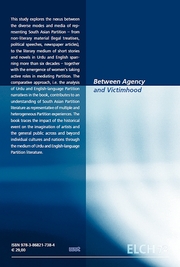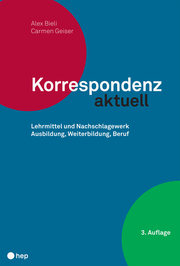Between Agency and Victimhood (gebundenes Buch)
Between Agency and Victimhood
Remembering Women in South Asian Partition Narratives
Erschienen am
07.12.2017
Bibliographische Informationen
ISBN/EAN: 9783868217384
Sprache: Englisch
Seiten: 216
Fomat (h/b/t): 25.0 x 15.0 cm
Bindung: gebundenes Buch
Inhalt
I. Introduction 1
II. (Trans)cultural memories of South Asian Partition 20
2.1. Concepts of (trans)cultural memory 20
2.2. Remembering South Asian Partition 26
2.2.1. Mediated memories of Partition 27
2.2.2. Transgenerational, gendered, and traumatic memories
of Partition 29
III. Narratological approaches towards the representation
of South Asian Partition 35
3.1. From narrative worlds towards world-making through narratives 37
3.2. Nexus between feminist theory and narratology 39
3.3. Gendered space, time, and narrative transmission in Partition fiction 41
IV. Oscillating between agency and victimhood: Indian women
during colonial rule, independence movement and partition 47
4.1. Colonial India: women as bearer of traditions
in need of social reforms 47
4.2. Independence movement: women as preservers of tradition
mobilized for nationalist purposes 55
4.2.1. Sarojini Naidu: advocating Hindu-Muslim unity 57
4.2.2. Gandhi: mobilizing women for the cause
of Indian independence 62
4.2.3. M.A. Jinnah: mobilizing Muslim women for the cause
of Pakistan 67
4.3. Partition: women’s bodies as cultural markers
turned into sites of violence 70
V. South Asian Partition Literature in Urdu 79
5.1. Victimization of the perpetrator:
ٹھنڈا گوشت (trans.: “Cold Meat”) 88
5.1.1. Revenge upon the perpetrator 90
5.1.2. The confession of a perpetrator 91
5.1.3. “Cold Meat” in legal trouble 93
5.2. A mother’s refusal to leave her ‘roots’: جڑيں (trans.: “Roots”) 97
5.2.1. When India is operated upon 99
5.2.2. Amma: storekeeper of memories 101
5.3. Crossing the threshold of the house: آنگن (trans.:
) 103
5.3.1. Kariman Bua: lamenting the forlorn past 105
5.3.2. Kusum: suffering social stigmatization 107
5.3.3. Aaliya: suffereing the burden of past memories 110
5.4. How many more Partitions? بستی (trans.:
) 113
5.4.1. Zakir: caught between forgetting and remembering 117
5.4.2. Sabirah: the remembered one 121
VI. South Asian Partition Literature in English 125
6.1. Sikh martyrdom amidst Partition violence:
126
6.1.1. Set gender roles in Mano Majra 128
6.1.2. Nooran: when courage is punished 129
6.1.3. Haseena: when courage is rewarded 131
6.1.4. Sundari: the voiceless victim of Partition violence 132
6.1.5. Feminization of Hindu men 134
6.2. Negotiating gender, memory and history in Anita Desai’s
135
6.2.1. Family house as a memory evoking site 140
6.2.2. Healing trauma through acts of memory 143
6.3. Travelling purity:
145
6.3.1. The fragmented female body as a foreboding of Partition 148
6.3.2. Tracing 1947-Partition 149
6.3.3. Pakistan as the partitioned other of India 152
6.3.4. Indo-Pak War(s) as a legacy of Partition 155
6.4. Dismantling fixed notions of Partition:
156
6.4.1. Lenny: witnessing and narrating Partition 158
6.4.2. Ayah: enduring Partition violence 160
6.5. A post-amnesian generation looks back: Kartography 166
6.5.1. Familial and affiliative generational correspondence 167
6.5.2. Interactive spatial mapping of Karachi 174
VII. Conclusion 179
Bibliography 184
Weitere Artikel aus der Kategorie "Sprachwissenschaft"
Vergriffen

Derzeit nicht verfügbar

Derzeit nicht verfügbar

Lieferbar innerhalb 24 Stunden






